fake identification
Outline:
- Introduction
- Brief overview of what fake identification is and why people use it.
- The growing prevalence of fake IDs globally.
- Ethical and legal considerations in discussing this topic.
- Understanding Fake Identification: What Are They?
- Definition and types of fake identification (driver’s licenses, passports, ID cards).
- How fake IDs are produced and distributed.
- Digital and physical methods used to create fake IDs.
- The Motivations Behind Fake IDs
- Why people use fake IDs (age restrictions, avoiding legal issues, illegal immigration, etc.).
- Fake ID usage in different age groups and contexts (e.g., underage drinking, employment fraud).
- Case studies: High-profile incidents involving fake IDs.
- Legal Consequences and Risks of Using Fake IDs
- Laws surrounding fake identification production, possession, and usage across different countries.
- Consequences for consumers, including fines, jail time, and long-term legal ramifications.
- Impacts on businesses caught accepting fake IDs (liability, loss of licenses).
- Law enforcement tactics in identifying and prosecuting fake ID usage.
- Market Analysis: Who’s Producing and Selling Fake IDs?
- Overview of the global black market for fake identification.
- How these markets operate: online forums, dark web transactions, and local providers.
- Profiling major regions known for producing and selling fake IDs.
- Price ranges and quality levels of different fake ID products.
- Technological Evolution in Fake ID Creation
- How modern technology (printers, holograms, digital templates) has revolutionized fake ID production.
- Counterfeit-resistant features in modern IDs.
- Examples of digital IDs and the security measures governments are adopting.
- The role of blockchain and biometric data in secure identification.
- Target Audience: Who Is Purchasing Fake IDs?
- Identifying demographic groups likely to seek out fake IDs (students, young professionals, immigrants).
- Psychological factors driving the decision to buy fake identification.
- The age, gender, and social background analysis of users.
- Advertising and marketing strategies used by those selling fake IDs online.
- The Role of Social Media and the Internet
- How fake ID sellers advertise through social media platforms.
- The rise of DIY tutorials for creating fake IDs and their impact.
- Internet safety and privacy concerns for those purchasing fake IDs online.
- The Business Impact of Fake Identification
- How fake IDs affect various industries (nightclubs, bars, alcohol sales, travel).
- Case studies: Businesses losing licenses due to fake ID acceptance.
- Technologies used by businesses to detect fake IDs and prevent fraud.
Combating Fake Identification: Solutions and Prevention
- Government measures to prevent the spread of fake IDs (legislation, enforcement, collaboration with tech companies).
- How law enforcement agencies crack down on fake ID production.
- The future of secure identification technology (biometrics, blockchain-based IDs, digital wallets).
- Educational programs and campaigns to reduce demand for fake IDs among youth.
The Future of Identification: Where Are We Heading?
- The rise of digital IDs and government initiatives to digitize personal identification.
- The security benefits of mobile and biometric-based IDs.
- How counterfeiters might adapt to new technologies.
- Predictions for the next 10 years in identity security and the fight against fraud.
Conclusion
- Recap of the risks, consequences, and market factors related to fake identification.
- Final thoughts on the importance of secure identification in modern society.
- Call to action for individuals and organizations to be more vigilant in preventing fake ID use.
Expanded Outline and Detailed Section Breakdowns
Now, let’s expand on a few of the key sections:
1. Introduction
Fake identification has been an issue for decades, but recent advancements in technology have made it easier than ever to produce convincing fake IDs. Whether it’s a teenager trying to buy alcohol, someone attempting to hide their identity, or an individual using a false ID to gain employment illegally, the market for fake identification is booming.
According to various reports, the number of fake IDs in circulation has steadily increased over the past decade, with an estimate that millions of false identities are created annually across the globe. The internet has played a major role in this trend, allowing individuals to easily access fake ID sellers or even learn how to make their own counterfeit documents.
However, using or selling fake identification carries serious consequences, not just for the individual but also for businesses and governments. As nations attempt to clamp down on identity fraud, they are adopting more sophisticated security measures and working closely with law enforcement agencies to prevent the circulation of these illegal documents.
2. Understanding Fake Identification: What Are They?
Fake identification refers to any document that falsely represents an individual's identity, whether by modifying existing documents or creating entirely new ones. The most common forms of fake IDs include driver’s licenses, national ID cards, passports, and other forms of government-issued documentation.
There are two primary types of fake IDs:
Altered Identification: Legitimate IDs that have been modified in some way (e.g., changing the date of birth on a real driver’s license).
Counterfeit Identification: Completely falsified documents made from scratch, often designed to look identical to official documents.
Fake IDs are often produced using advanced printing technology, holographic overlays, and materials that mimic official ID cards. As technology evolves, fake IDs become harder to detect, making it necessary for businesses and law enforcement to adopt more sophisticated methods of verification.
3. The Motivations Behind Fake IDs
The reasons people use fake IDs vary widely depending on their circumstances. For example, a teenager might use a fake ID to purchase alcohol or get into a nightclub, while an adult might use one to evade law enforcement or cross borders illegally. Some common motivations include:
- Underage drinking: One of the most prevalent reasons young people seek out fake IDs is to buy alcohol or gain access to age-restricted venues.
- Identity theft: Criminals might use fake IDs to open bank accounts, obtain loans, or commit other forms of financial fraud.
- Illegal immigration: In some cases, individuals may use fake IDs to obtain work or residency in a country without proper documentation.
Case Study: The Impact of Fake IDs in University Settings
University towns are often hotbeds for fake ID use. A study conducted in several large university cities revealed that nearly 50% of students had used a fake ID at some point to purchase alcohol or enter restricted venues. This widespread use can create legal issues for local businesses and negatively affect the community.
4. Legal Consequences and Risks of Using Fake IDs
Possessing, creating, or distributing fake IDs is illegal in most countries and can lead to serious legal repercussions. While the specifics of these laws vary by jurisdiction, penalties often include:
- Fines: In many regions, individuals caught using a fake ID face significant fines, which can range from hundreds to thousands of dollars.
- Criminal charges: Depending on the severity of the offense, individuals may be charged with a misdemeanor or felony, leading to a criminal record.
- Jail time: In some cases, particularly when fake IDs are used for more serious crimes, individuals can be sentenced to prison.
Impact on Businesses
Businesses that inadvertently accept fake IDs can also face harsh penalties. For example, bars and clubs that serve alcohol to minors using fake IDs can lose their liquor licenses or face hefty fines. Many businesses now employ ID scanning technology to verify the authenticity of IDs, but even this can sometimes be insufficient due to the quality of modern counterfeit documents.
7. Target Audience: Who Is Purchasing Fake IDs?
The demographic most associated with fake ID purchases tends to be young adults, particularly those aged 18-25. College students are a key market due to their desire to bypass age restrictions on alcohol and entry into clubs and bars.
However, fake IDs are also sought after by other groups, such as:
- Immigrants seeking employment: In countries where stringent laws make it difficult to obtain work permits, some immigrants turn to fake IDs to secure employment.
- Criminals: For those engaged in identity theft or fraud, fake IDs can provide a way to create a new persona, making it easier to carry out their schemes.
10. Combating Fake Identification: Solutions and Prevention
As fake ID technology becomes more advanced, so too must the efforts to prevent their production and use. Many governments have adopted cutting-edge technology to make official IDs more secure, including:
- Holograms and UV features: These are difficult to replicate and are often used on driver’s licenses and passports to prevent counterfeiting.
- Digital IDs: Countries such as Estonia have already implemented digital ID programs, which use blockchain technology to securely store and verify identity information.
- Biometrics: Some nations are turning to biometrics (fingerprints, facial recognition) as a more secure form of identification.
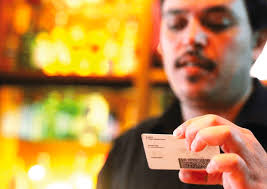 Maryland Fake ID
Maryland Fake ID
 Alabama Fake ID
Alabama Fake ID
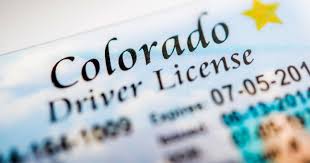 Massachusetts Fake ID
Massachusetts Fake ID
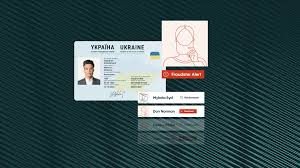 Ontario Fake ID
Ontario Fake ID
 North Carolina Fake ID
North Carolina Fake ID
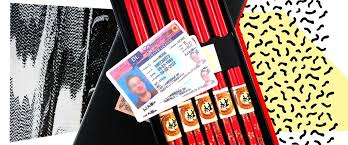 New Jersey Fake ID
New Jersey Fake ID
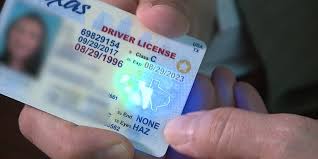 Kansas Fake ID
Kansas Fake ID

